Does Roehl Charge Tuition If You Fail Your CDL Exam?
Topic 25766 | Page 8
the same thing can happen to the OTR drivers as well....A risk is still a risk either way
There is no such thing as a completely safe truck driving job, but some are far more difficult and dangerous than others. The level of risk varies tremendously. It's not just all the same by any measure.
The idea is to have someone start out either running OTR or regional and pulling a flatbed, dry van , or reefer (refrigerated). That way you're going to spend the majority of your time on Interstates instead of city streets and you're going to be doing a lot of backing in truck stops or large warehouses. You're also going to have a far easier schedule to keep most of the time with a little more extra time built in. It's also rare that you're going to be handling any of the freight yourself, however flatbed drivers will have to tarp and secure their loads.
Local drivers tend to have far more difficult circumstances to deal with. They spend a huge portion of their time in heavy traffic. Many of them make multiple deliveries every day on a tight schedule and they're delivering to places that are extremely difficult to get a truck into. Many of them also have to unload the freight in some capacity, often using a pallet jack, a hand cart, or some other method.
LTL freight is a special sort of local job. They're home every night but they spend the majority of their time on the Interstate and any backing they do is normally under pretty easy circumstances. However, they're pulling a set of doubles using a tractor with a single drive axle which can be extremely dangerous in windy or slick conditions. So we don't recommend this straight out of school either.
Tankers are far too dangerous for a new driver to handle because the liquid inside is sloshing around and can do so quite violently. It can easily roll you over, push you off the highway, or knock you into a tractor jackknife.
do you have anything that backs up your statement if city driver vs. OTR is "more" dangerous or are you going off you knowledge in the industry? (Just asking)
I do not have any numbers to back it up but the numbers wouldn't tell the whole story. The overwhelming majority of local drivers have quite a few years of experience under their belt. You wouldn't be able to compare them to brand new drivers who are driving OTR. However, I do have a lot of experience in all facets of driving and I'll get to that in a minute. But first I'll share some interesting facts that I've learned from experience and from speaking to many safety officers over the years:
For starters, brand new drivers do not tend to be the most dangerous drivers on the highway. They do tend to have the largest number of recordable incidents, but the overwhelming majority of them are tiny incidents like backing into mirrors or clipping the front end of another truck in a truck stop parking lot. Brand new drivers tend to be very cautious and deliberate with everything they're doing.
The most dangerous drivers on the highway are those with between 6 months and 2 years of experience. At that point you don't have nearly the skill set or the experience that a much more seasoned driver has but they tend to become way overconfident in their abilities or the circumstances they're in. These are the drivers that often tailgate other vehicles, text or get distracted while driving, drive too fast for conditions, or let their guard down in seemingly benign circumstances. The gigantic, catastrophic wrecks often involve people in this phase of their career.
After you've been out there long enough you come to realize that there is no such thing as a safe moment on the highway. Every moment is potentially lethal, and the overwhelming majority of catastrophic wrecks I've witnessed were in ideal conditions - light traffic, sun shining, and dry roads. People let their guard down and all of a sudden there's parts flying, huge flames shooting up in the air, and bodies on the highway. Anyone who has witnessed or experienced a catastrophic wreck is always amazed at how suddenly it happens. One moment life is grand, the next you're in a horror flick.
Although I don't have numbers to back it up, I do have 15 years of experience in every type of truck and every driving job imaginable. I've pulled dry vans, reefers, tankers, and flatbed. I've done city work, regional work, and OTR work. I've even spent quite a bit of time driving dump trucks and I shuttled construction workers in school buses.
I can tell you from my experience and the shared knowledge of many others throughout the industry that starting out OTR for one solid year is the safest, surest way to build a solid foundation for a truck driving career. Although a brand new driver may find other more dangerous opportunities, we highly recommend against accepting them. You have to remember that there are a lot of people who will go beyond what is prudent for the sake of making a dollar. If that means hiring someone who is a little under qualified in order to save a few bucks on the payroll or to get them out of a pinch they may just do it. These are the types sitting safely behind a desk putting you and the people around you on the highway in danger. Don't let someone else's greed or imprudence mislead you into thinking you're ready for something when you're not.
Old School has an awesome saying for this. He says don't let the tyranny of the urgent get you into trouble. A lot of people want to shortcut the surest path and jump straight into something more dangerous, usually to get more home time. We always understand when someone wants to get home as often as possible, but you have to understand that you're often putting your life, your career, and the lives of others in jeopardy by getting in over your head. This is an extremely dangerous job. Take the time to build a safe and solid foundation for your career. Put in one full year of OTR or regional work and then you'll be established on solid footing when the doors open up for many other opportunities.
Regional:
Regional Route
Usually refers to a driver hauling freight within one particular region of the country. You might be in the "Southeast Regional Division" or "Midwest Regional". Regional route drivers often get home on the weekends which is one of the main appeals for this type of route.
LTL:
Less Than Truckload
Refers to carriers that make a lot of smaller pickups and deliveries for multiple customers as opposed to hauling one big load of freight for one customer. This type of hauling is normally done by companies with terminals scattered throughout the country where freight is sorted before being moved on to its destination.
LTL carriers include:
- FedEx Freight
- Con-way
- YRC Freight
- UPS
- Old Dominion
- Estes
- Yellow-Roadway
- ABF Freight
- R+L Carrier
OTR:
Over The Road
OTR driving normally means you'll be hauling freight to various customers throughout your company's hauling region. It often entails being gone from home for two to three weeks at a time.
Interstate:
Commercial trade, business, movement of goods or money, or transportation from one state to another, regulated by the Federal Department Of Transportation (DOT).
Doubles:
Refers to pulling two trailers at the same time, otherwise known as "pups" or "pup trailers" because they're only about 28 feet long. However there are some states that allow doubles that are each 48 feet in length.
Dry Van:
A trailer or truck that that requires no special attention, such as refrigeration, that hauls regular palletted, boxed, or floor-loaded freight. The most common type of trailer in trucking.Reefer:
A refrigerated trailer.
HOS:
Hours Of Service
HOS refers to the logbook hours of service regulations.It is impossible for you to understand what we are talking about until you do it. So I am giving an example.
This is a Walmart OTR drivers deliver to. G Tow starts his day here in Pottsville PA. Lots of space to setup for backing and room to turn around.
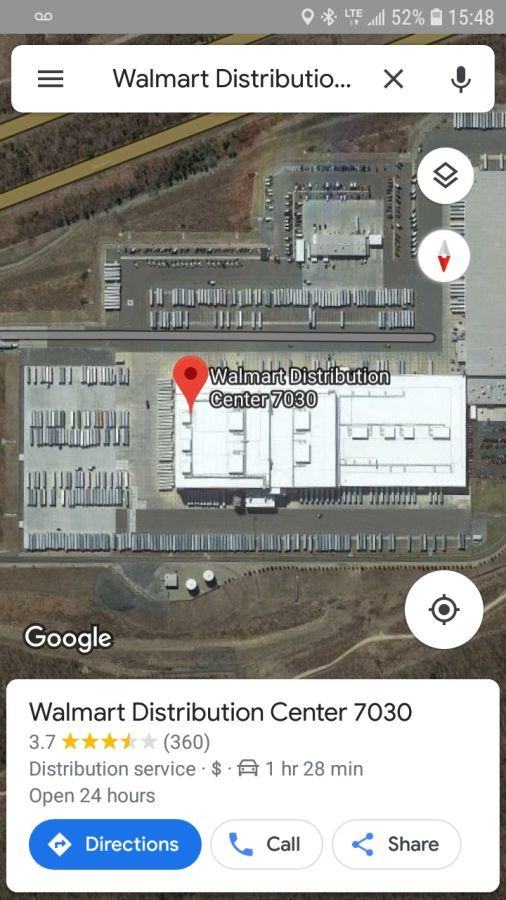
Now here is a tiny place in NJ where the cars park across from you, there is traffic coming in both directions that won't stop as you jack knife around the telephone pole and try to avoid hitting anything. I delivered here a couple months ago. As OTR, this is unusual.... maybe once a year. As a local, it is much more common.
As an experienced driver, i could evaluate the area and parked cars and determine a way to set up. i also wasn't distracted or nervous by the moving vehicles around me.
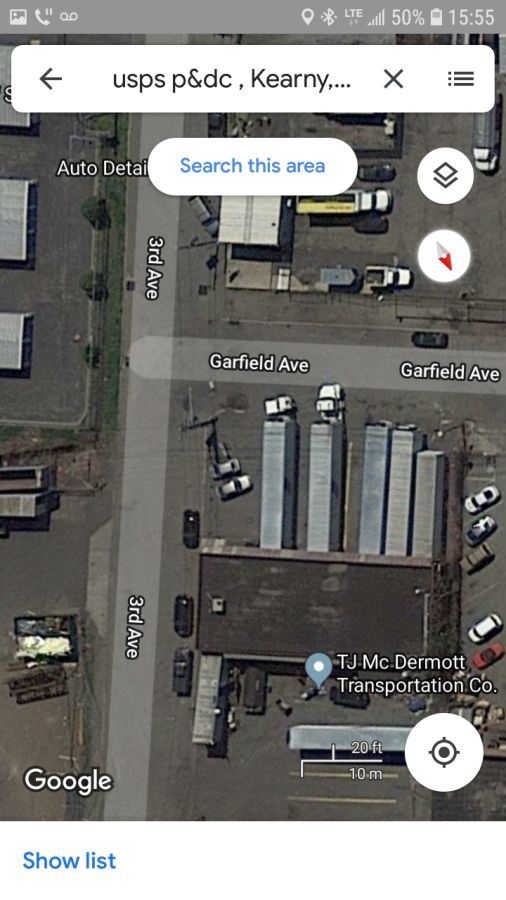
OTR:
Over The Road
OTR driving normally means you'll be hauling freight to various customers throughout your company's hauling region. It often entails being gone from home for two to three weeks at a time.
I failed at my company sponsored school. They gave me another test the next week, which I also failed. Schneider paid for a few more hours and another test in my home state, so I had to do everything over again, but I finally passed maneuvers, and failed on the road test because my tandems rubbed the curb going around a jug handle. I could have easily given up at any number of points. So Schneider was done, and wouldn’t come up with anymore money for tests. I had to rent the truck and pay for the test myself, which I passed the next week. The point is, you have to put forth the effort and do the work. I worked my butt off in a lot of pain, because I didn’t want to give up. I didn’t give up and now I’m almost done with my first year at Schneider. Keep pushing yourself.
Tandems:
Tandem Axles
A set of axles spaced close together, legally defined as more than 40 and less than 96 inches apart by the USDOT. Drivers tend to refer to the tandem axles on their trailer as just "tandems". You might hear a driver say, "I'm 400 pounds overweight on my tandems", referring to his trailer tandems, not his tractor tandems. Tractor tandems are generally just referred to as "drives" which is short for "drive axles".
Tandem:
Tandem Axles
A set of axles spaced close together, legally defined as more than 40 and less than 96 inches apart by the USDOT. Drivers tend to refer to the tandem axles on their trailer as just "tandems". You might hear a driver say, "I'm 400 pounds overweight on my tandems", referring to his trailer tandems, not his tractor tandems. Tractor tandems are generally just referred to as "drives" which is short for "drive axles".
Here is another I delivered to. OK State University campus. Narrow streets with a sea of students on bikes, roller blading, listening to ipods not paying attention because pedestrians have the right of way. The streets were so narrow i had to get security to stop the traffic so i could turn. Cars were parked on both sides of the street. Then a blindside back weaving in between parked cars.
I had 2 years on the driving with this and still struggled. Quite different from the usual OTR customers and when at large facilities, other drivers are there who can help guide you. At these type of small places, the customer says "i dont pay attention to how the trucks back in. We get one 53 footer a month." No help whatsoever!
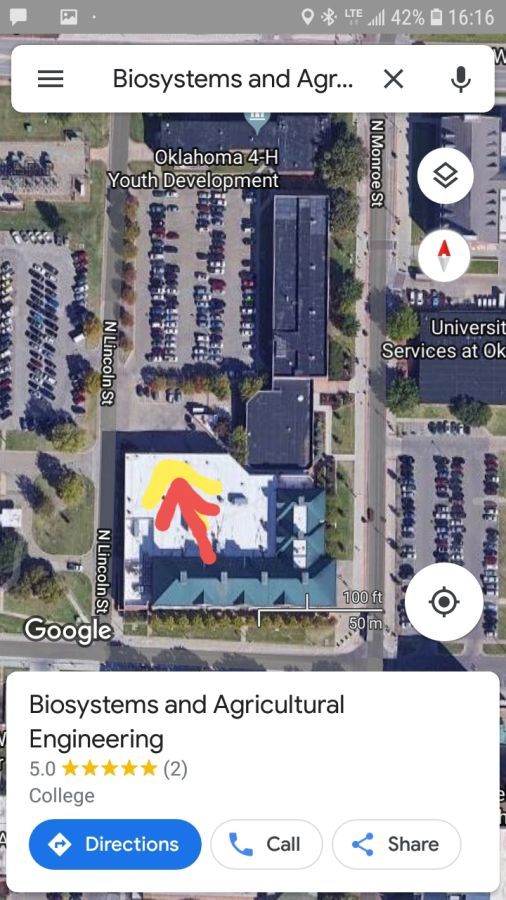
OTR:
Over The Road
OTR driving normally means you'll be hauling freight to various customers throughout your company's hauling region. It often entails being gone from home for two to three weeks at a time.

...indeed I do start my day at 7030, and usually return there every day after a minimum of 12 hours. 40% or more of my day is spent driving in urban areas or backcountry roads and delivering up to 5 different Walmart stores in highly congested areas like Kearny NJ.
Google Walmart’s in places like (to name a few):
Gladwyn PA
Boothwyn PA
Warminster PA
Winwood PA
Mount Pocono PA
Temple PA (500’ narrow alley back)
Any Philadelphia store
Any North Jersey Store
Marlton NJ
Clinton NJ
Toms River NJ
Wall NJ
Elmsford NY (Sams)
Valley Stream NY
Many more requiring great care getting to, getting into the dock area (through customer parking lots) and getting out of. Although Walmart Dedicated is considered regional OTR , the final miles and getting from one store stop to the next are always local and increase risk 10x.
Regional:
Regional Route
Usually refers to a driver hauling freight within one particular region of the country. You might be in the "Southeast Regional Division" or "Midwest Regional". Regional route drivers often get home on the weekends which is one of the main appeals for this type of route.
OTR:
Over The Road
OTR driving normally means you'll be hauling freight to various customers throughout your company's hauling region. It often entails being gone from home for two to three weeks at a time.
And this is my local grocery store running day cabs. I pass it all the time and shack my head. The overhead shot looks much bigger than when you are standing there. These kinds of situations are frustrating and total learning curves.
Im posting this so you know what kind of challenges you will face in addition to handling everything else.
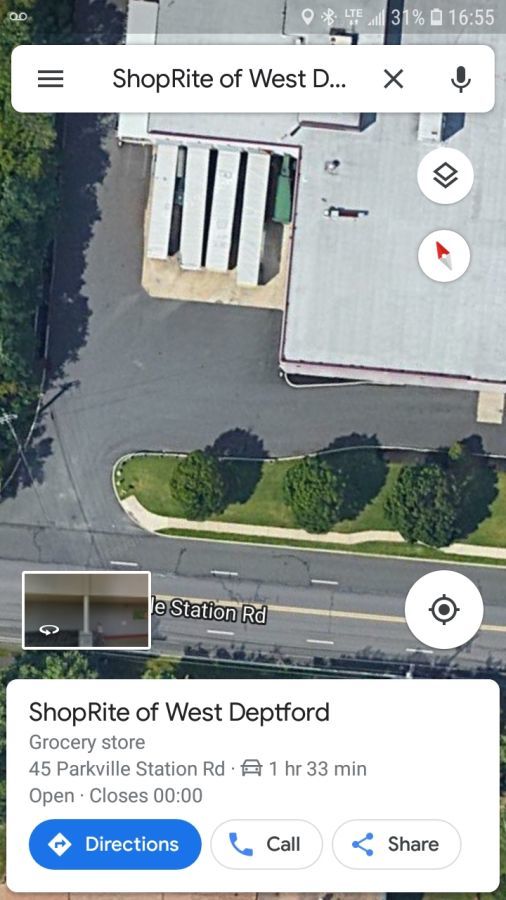
Day Cab:
A tractor which does not have a sleeper berth attached to it. Normally used for local routes where drivers go home every night.
Not sure if you'd consider my job delivering to grocery stores local because we cover quite a bit of miles most days although I'm home 99%of the time daily. However In the diary I made the stores I've shown due to delivering them have made it look like a simple job. While most backs are pretty straight forward we must have the skill to get it in there regardless of what we face. This is one I delivered to about a month ago.
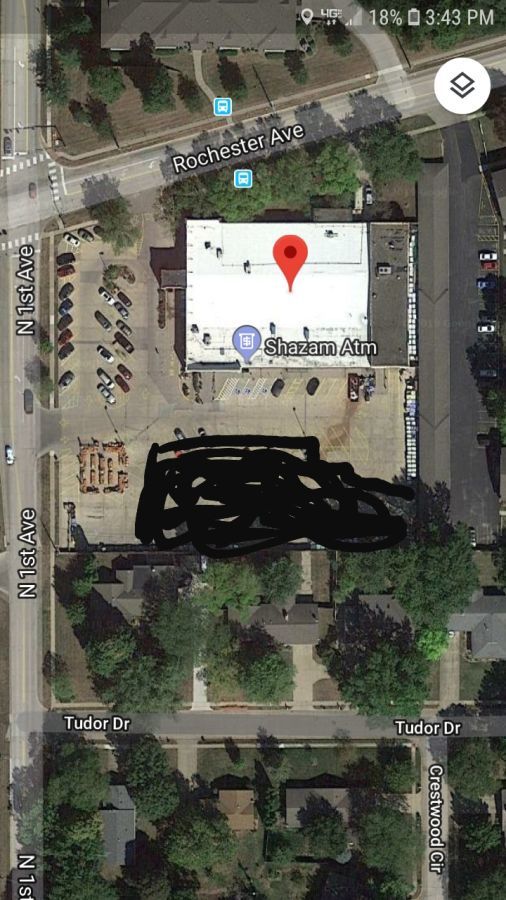 the portion I blacked out was a greenhouse and patio furniture for a sale they had so that space became useless. If that wasnt there It would've been a slight offset on the blindside. Of course Google's satellite view didn't show me that when I checked to have an idea of what I was facing. The dock is the corner of building with the 2 yellow lines near "ATM" with yellow concrete poles about a foot - foot and half off to the side of those. I didn't see it until i had hooked a right onto 1st from Rochester and needed to come up with a game plan nearly immediately as it becomes much harder the longer you wait and cars get inpatient and more unpredictable. I'm not saying to rush yourself and get into trouble by not GOALing or trying to relax. What I came up with being the best option is backing in off the street and do a blindside 90. I had so much to focus on...parked cars, street lights, fire hydrant, moving cars that will pull out in any little space given. This particular store is our drugstores which tend to be in heavily residential areas. I drove 4 miles navigating residential streets and taking up the whole street trying to make turns while avoiding cars parked on streets due to following my PeopleNet GPS.
the portion I blacked out was a greenhouse and patio furniture for a sale they had so that space became useless. If that wasnt there It would've been a slight offset on the blindside. Of course Google's satellite view didn't show me that when I checked to have an idea of what I was facing. The dock is the corner of building with the 2 yellow lines near "ATM" with yellow concrete poles about a foot - foot and half off to the side of those. I didn't see it until i had hooked a right onto 1st from Rochester and needed to come up with a game plan nearly immediately as it becomes much harder the longer you wait and cars get inpatient and more unpredictable. I'm not saying to rush yourself and get into trouble by not GOALing or trying to relax. What I came up with being the best option is backing in off the street and do a blindside 90. I had so much to focus on...parked cars, street lights, fire hydrant, moving cars that will pull out in any little space given. This particular store is our drugstores which tend to be in heavily residential areas. I drove 4 miles navigating residential streets and taking up the whole street trying to make turns while avoiding cars parked on streets due to following my PeopleNet GPS.
HOS:
Hours Of Service
HOS refers to the logbook hours of service regulations.OWI:
Operating While Intoxicated
Rainy that one looks fun! This is street view from shoprite
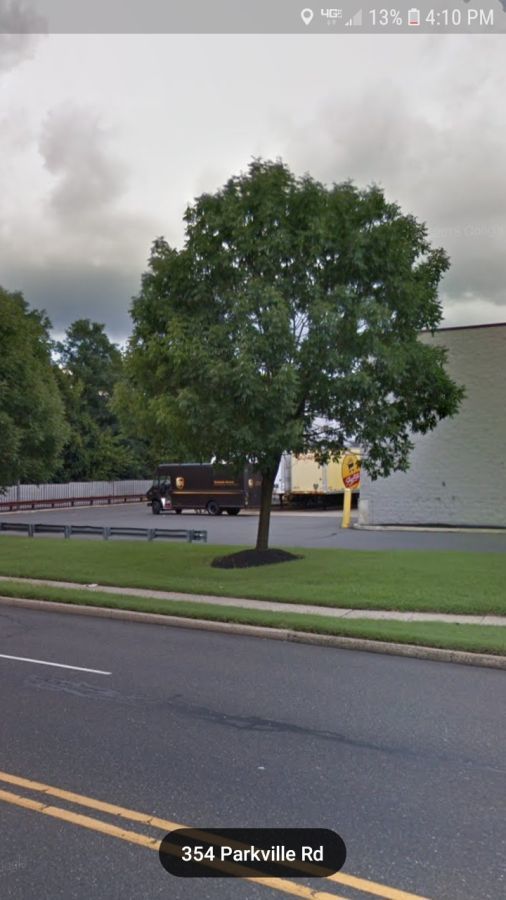
If it were me I'm thinking the way I'd approach it is pull straight in and go to the right of the dock along the building, then back up along the other side of building and pull out the way you came in and blindside it in. Still not a ton of room but that's best I could come up with. I looked at overheard of entire shopping center and if there are cars at staples (other side of mall) you can't just drive around it. Also some of our stores get fined by the property management if we drive through customer areas.
I delivered to the shop rite in Stamford, CT. Just getting there was no fun and the dock was really tough in the parking lot. I also love the place I was at last week in Carlstadt, NJ. Metal recycler on veterans ave. Not fun in traffic.
New Reply:
New! Check out our help videos for a better understanding of our forum features

















Preview:
This topic has the following tags:
Roehl Transport Attending Truck Driving School CDL Training Company Sponsored CDL Training Hard Lessons Learned Paying For Truck Driving School







 TT On Facebook
TT On Facebook
I agree with you... but guess what the same thing can happen to the OTR drivers as well. Lets not forget they will be driving on our highways at a high rate of speed, in snow/ice (Im in the warm South), coming in and out of on/off ramps to drive in the city and pull into stores/docks of they have never visited before. A risk is still a risk either way. I not sure if statistics are available but do you have anything that backs up your statement if city driver vs. OTR is "more" dangerous or are you going off you knowledge in the industry? (Just asking)
OTR:
Over The Road
OTR driving normally means you'll be hauling freight to various customers throughout your company's hauling region. It often entails being gone from home for two to three weeks at a time.
HOS:
Hours Of Service
HOS refers to the logbook hours of service regulations.OOS:
When a violation by either a driver or company is confirmed, an out-of-service order removes either the driver or the vehicle from the roadway until the violation is corrected.